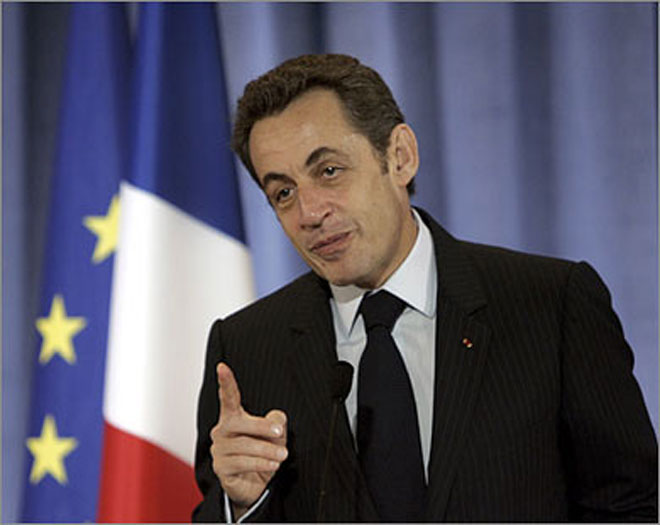Azerbaijan, Baku, Oct.6 / Trend, E.Tariverdiyeva /
The history of France and Germany shows that it is possible to mitigate the most severe pain and overcome the deepest hate and that people can find the strength for reconciliation even in the darkest moments of their history, French President Nicolas Sarkozy said in an interview with the Armenian Mediamax agency, commenting on the Nagorno-Karabakh negotiations.
"When our countries made a choice of reconciliation, by that time they three times conflicted with each other within decades. During the First World War, France and Germany fought with indescribable bitterness. Under the ruins of the World War II, accompanied by the horrors and sufferings, our countries had the courage to reconcile and build a friendship, which has no equal. This friendship is now a keystone of European formation," Sarkozy said.
The Armenians and Azerbaijanis should choose only this way, Sarkozy said.
"It is time for you to make the risky choice of peace, because there is no greater risk than maintaining the status quo, which gives rise to illusions, provokes revenge, and every day more and more destroys the prospects to achieve peace," he said.
It is time to resolve the conflict and find a way to reconciliation seventeen years after the war that caused so much death and suffering, he said.
The conflict between the two South Caucasus countries began in 1988 when Armenia made territorial claims against Azerbaijan. Armenian armed forces have occupied 20 percent of Azerbaijan since 1992, including the Nagorno-Karabakh region and 7 surrounding districts.
Azerbaijan and Armenia signed a ceasefire agreement in 1994. The co-chairs of the OSCE Minsk Group - Russia, France, and the U.S. - are currently holding the peace negotiations.
Armenia has not yet implemented the U.N. Security Council's four resolutions on the liberation of the Nagorno-Karabakh and the surrounding regions.
Sarkozy said in recent years the European Union has strengthened its role in the South Caucasus
France wants the European Union to establish closer ties with the region's countries, he said.
"South Caucasus is a strategic region for the EU, and associative and partnership with the European Union will contribute to the well-being, strengthening of democracy and dialogue in the three Caucasus countries," Sarkozy said.
There is the Minsk Group format to support the international community's efforts to resolve the Nagorno-Karabakh conflict. Each of the three Minsk Group co-chairs has confidence of both sides and fully involved with them in the process of determining the conditions to resolve the conflict, he said.
"But first, you, the Azerbaijanis and Armenians, should find the way. We can help, accompany, but we can not make peace for you," Sarkozy said.






